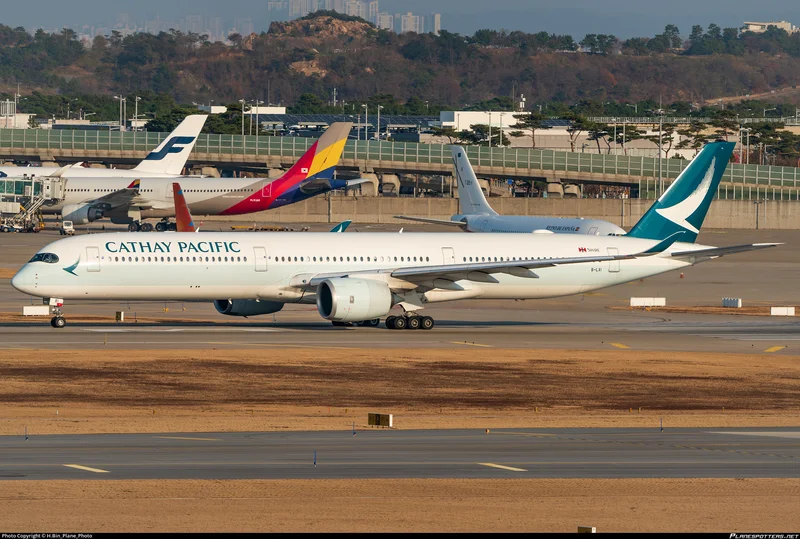Article Directory
I want you to stop for a moment and think about the biggest, most intractable problems we face. Climate change. The carbon footprint of global travel. For decades, the aviation industry has felt like a giant trapped in amber—essential for connecting our world, yet shackled to a fossil-fueled past. We’ve heard promises of a greener future, but they often felt distant, like a mirage on a long runway.
When I first saw the announcement—Airbus and Cathay form co-investment partnership for scaling sustainable aviation fuel adoption - Airbus—from Airbus and Cathay Group in Hong Kong, I honestly just sat back in my chair, speechless. On the surface, it’s a press release about a US$70 million co-investment. Corporate stuff. But if you look closer, if you really see the blueprint they’re laying out, you realize this isn’t just another line item in a sustainability report. This is one of the first, tangible signs of a paradigm shift I’ve been waiting for my entire career. It’s the moment an industry stops waiting for the future and starts building it themselves.
This is the kind of breakthrough that reminds me why I got into this field in the first place. It’s not about a single invention; it’s about a new way of thinking.
From Passive Consumer to Active Architect
For as long as modern aviation has existed, the model has been simple: airlines are customers. They buy planes from manufacturers like Airbus and fuel from energy giants. They operate within the system they’re given, their fate tied to the volatile price of oil and the slow, grinding pace of external innovation. They’ve been waiting for someone, somewhere, to invent and scale a clean energy source they could simply purchase at the pump.
This deal between Cathay and Airbus completely flips that script.
They’re co-investing to accelerate the production of Sustainable Aviation Fuel—in simpler terms, it's a replacement for traditional jet fuel made from renewable sources like agricultural waste or used cooking oil, capable of slashing lifecycle emissions by up to 80%. But they aren’t just placing an advance order. They are putting their own capital on the line to identify, evaluate, and fund the very facilities that will produce it. This isn’t like buying a ticket for a train that’s already running. It’s like teaming up to design the engine and lay the tracks for a whole new kind of railway, all at the same time.
Think about what this really means. Cathay isn't just hoping for a reliable supply of SAF; it's actively influencing which plants get built and where, ensuring they have access to a fuel source that barely exists at commercial scale today. For Airbus, it’s a masterstroke. Instead of just building more efficient planes and hoping the fuel problem sorts itself out, they are helping create the fuel their future aircraft will need to be truly sustainable. They are securing the future for their own customers.

This is a move from passive consumption to active architecture. It’s a recognition that if you want to change the world, you can’t just wait for the necessary components to appear on the market. Sometimes, you have to build the market itself. And while $70 million might sound like a drop in the bucket for an industry that measures costs in the billions, it’s not about the dollar amount. It’s catalytic capital. It’s a seed crystal dropped into a supersaturated solution, intended to spark a chain reaction of investment and development across Asia.
A Replicable Blueprint for Change
Here’s where it gets truly exciting. The most powerful line in the entire announcement wasn’t about the money or the fuel; it was about creating a "repeatable co-investment model." This isn’t a one-off deal. It’s a template. A piece of open-source code for industrial transformation.
This is the part that truly gets me—it’s not just about one airline or one manufacturer, it’s about creating a template that can be copied and pasted across the globe, accelerating a transition that many thought would take decades and proving that collaboration is the ultimate technology. Imagine this model being adopted by other airline alliances, by shipping consortiums, by trucking federations. Imagine industries everywhere realizing they don't have to be victims of their supply chains; they can be the creators of new ones.
This is a profound echo of historical shifts in innovation. It reminds me of the early days of the internet, when companies didn't just build websites; they had to invest in the physical servers, the fiber optic cables, and the very protocols that made the network possible. They were building the infrastructure of their own future. Airbus and Cathay are doing the same for sustainable energy in the skies.
Of course, with this power comes immense responsibility. As they forge this new market, they have a duty to ensure these new SAFs are genuinely sustainable, avoiding unintended consequences like food-source competition or deforestation. The power to build a new system is also the burden of getting it right. But for the first time, the power is in the hands of the people who need the solution most.
The questions this raises are thrilling. What happens when this model scales? What if every major airline alliance started co-funding regional SAF hubs, creating a decentralized, global green energy network for aviation? Are we witnessing the beginning of the end for the centralized, fossil-fuel-dependent model that has chained the industry down for a century?
They're Not Waiting for the Future, They're Building It
Let’s be clear. For years, the narrative around decarbonizing "hard-to-abate" sectors like aviation has been one of weary resignation. This deal shatters that. It’s a jolt of pure, pragmatic optimism. It proves that legacy industries don’t have to be fossils-in-waiting. They can be the engines of their own reinvention. This is the shift from asking "when will someone solve our problem?" to declaring "we will solve it ourselves." And that, right there, is the most powerful fuel of all.



